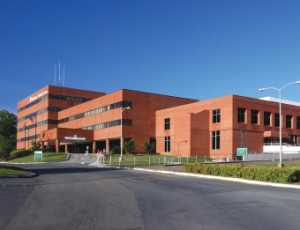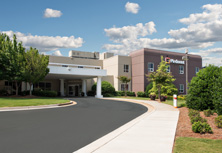A rural hospital announces that it’s closing its doors after steep financial losses.
Employees will be laid off. Patients will have to travel farther to get hospital care.
Democrats blame the fact that the Republican governor and state lawmakers have refused to expand Medicaid under the Affordable Care Act. Republicans blame changes resulting from the ACA.
Sound familiar?
This time it’s not Georgia, but South Carolina.
Southern Palmetto Hospital in Barnwell announced in a statement Tuesday that it will at least temporarily end “patient operations.” In other words, it will not be treating patients. It’s the third rural hospital in South Carolina to close since 2011, according to a report by South Carolina Radio Network.
In Georgia, four rural hospitals have closed since the beginning of 2013. Others are clearly struggling. The AJC reported Saturday that Washington County in east central Georgia is facing the unsettling prospect that its hospital could close, while many in the community are second-guessing the motives and leadership of its former CEO. (Here’s a link to the article.)
And last week, the owners of two other struggling rural hospitals in Georgia discussed downsizing efforts that aim to continue some medical services, including emergency rooms, while paring back others.
Those two situations, in Fort Oglethorpe and Ellijay, will be interesting to watch. Can these two institutions save money and weather the financial storm by offering limited services instead of continuing as full-scale hospitals?
“Only time will tell’’ whether the new formats will succeed, said Jimmy Lewis, CEO of HomeTown Health, an association of rural hospitals in the state.
The owner of North Georgia Medical Center in Ellijay said last week that it plans to close the inpatient unit and lease its emergency room and medical offices to Piedmont Healthcare.
And in Fort Oglethorpe, the new operator of Hutcheson Medical Center said it’s pursuing a “phased approach’’ for that hospital, which now operates an emergency department and “small inpatient service.’’ The hospital closed in December before beginning to take patients again later in the month.
Rural hospitals across the United States face some daunting challenges. Not only do they serve areas where potential patients are relatively few, but often those patients are likely to be unemployed, insufficiently insured or not insured at all.
Meanwhile, the government programs Medicare and Medicaid, which cover many rural patients, have tightened reimbursements to hospitals. And in states that have not expanded Medicaid, such as Georgia, hospitals continue to have a heavy burden of patients who can’t pay their bills. (Expansion extends Medicaid coverage to more people, allowing more reimbursement for their health providers.)
A Stateline article in August reported that there are about 2,300 rural hospitals in the United States, most of them concentrated in the Midwest and South. The news service said 56 rural hospitals that have closed since 2010, and that another 283 rural hospitals are in danger of closing, according to the National Rural Health Association
The plan in Ellijay could resemble the standalone ER idea pushed by Georgia Gov. Nathan Deal two years ago as a strategy to help financially struggling rural hospitals.
One major drawback for freestanding emergency departments, as they were proposed in Georgia in 2014, is that they would not qualify for as much reimbursement as hospitals receive. Freestanding EDs would not be able to bill Medicare or Medicaid at hospital rates, but would have to bill those programs at a lower “provider’’ rate, or as hospital outpatient clinics.
Most of the nation’s freestanding EDs are affiliated with a full-scale hospital elsewhere or with a larger health care system.
The North Georgia Medical Center situation involves a connection with Atlanta-based Piedmont, which owns Piedmont Mountainside Hospital in Jasper, about 20 miles from Ellijay.
North Georgia Medical Center has been losing money, its owner said, and many people needing inpatient care are already going to Piedmont Mountainside. The Ellijay hospital averaged about six inpatients for the past year, said Robert Thornton, CEO of SunLink Health Systems, which owns the hospital.
The closure of the hospital beds in Ellijay “is probably not what the community wants to hear,’’ Thornton acknowledged.
The Fort Oglethorpe hospital reopened for patient services Dec. 22 under a management services agreement with the health care company ApolloMD.
That company provides physician services, including emergency medicine, to several major health systems and more than 100 individual hospitals and surgery centers nationwide. It had been providing emergency services at Hutcheson prior to the hospital’s shutdown in early December.
The company said in a press release that the hospital now offers an emergency department and a “small inpatient service,’’ along with lab, pharmacy, radiology and other diagnostic services.
“We are committed to the mission of Hutcheson to provide outstanding, quality patient care for Fort Oglethorpe and surrounding areas,” said Jessica Tribbett, ApolloMD senior vice president of operations.
“We have a unique opportunity to develop a care model that fits the needs of the community,” she said.




